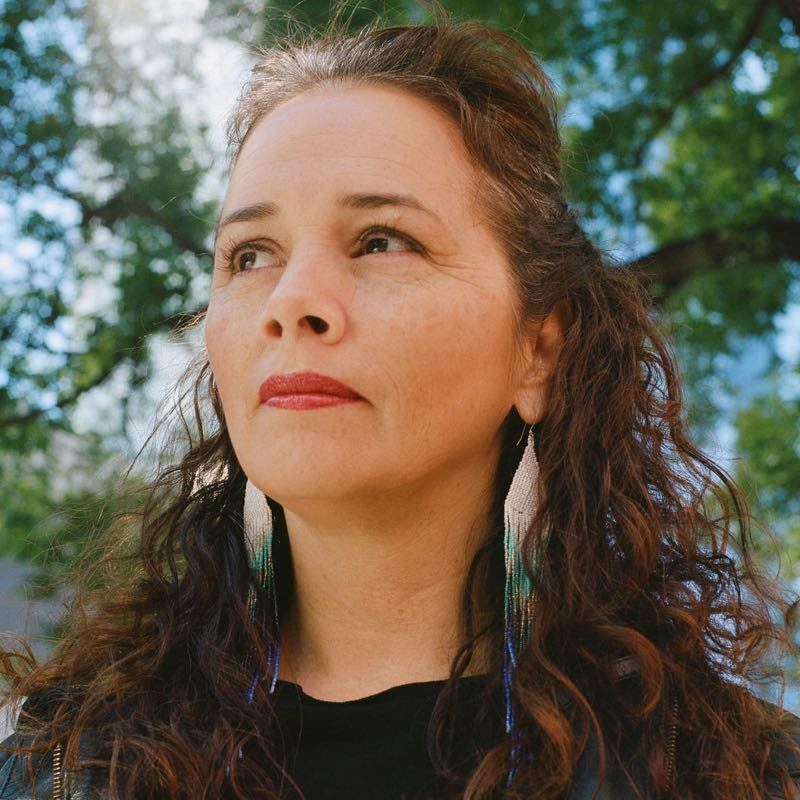Larissa FastHorse on The Thanksgiving Play and More
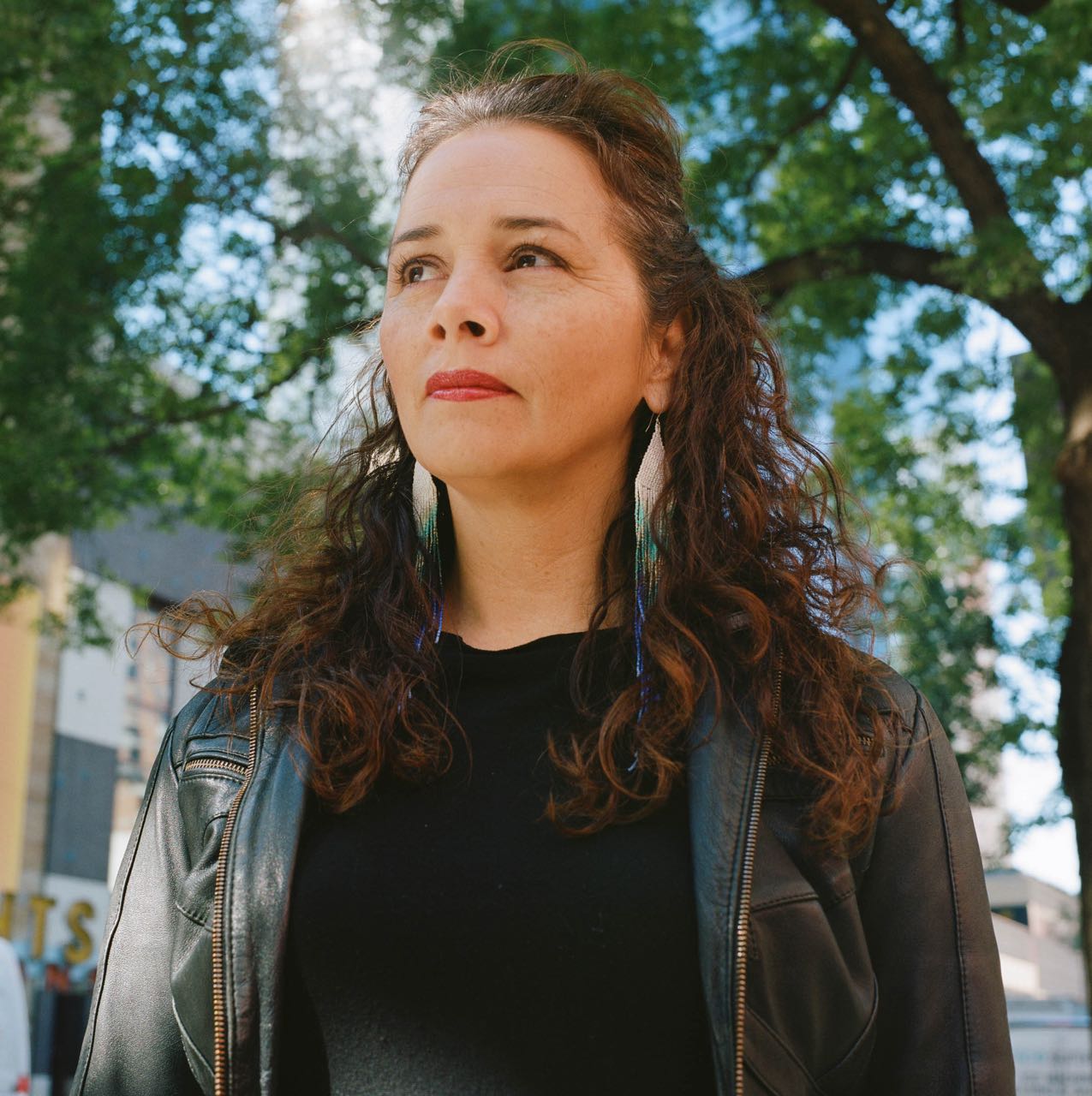
October 25th, 2018
In Larissa FastHorse’s new play, a group of teaching artists attempt to create the best, most enlightened, and most ally-tastic school play ever. The only problem is they are creating a Thanksgiving play that needs to be Thanksgiving-y, but also honors Native Americans. And they are all white. What ensues is a bonfire of the (self-appointed) allies. The Thanksgiving Play, currently in previews at Playwrights Horizons, marks the New York debut of Larissa FastHorse and is believed to be the first time a full-length, full production of a play by a Native American has been produced at a major Off-Broadway theatre. Larissa, whose plays have been produced all over the country, started as a ballet dancer and later worked in film and television before moving into theatre, where in addition to writing, she also directs and choreographs. I recently spoke with her about the inspiration for the play, satire in the American theatre dealing with race, the pressure of her New York debut, and more.
In another interview, you said you started writing this in response to theatres not producing your work because they said they couldn’t find the actors, and so you wanted to write something where they couldn’t say that. What was the genesis of the idea from there?
I’ve been a playwright for quite a while. This is my first play in New York City, but I worked regionally for a dozen years, full time, and I work primarily under commission. The number one reason I hear that my productions don’t get second or third productions is because of casting. I have one play that has one half Native American woman in it and I was told it’s un-castable. It was just a crazy, over the top word. I got tired of that, so I set myself the challenge of writing a completely castable play. I decided to write a play with all people who could be mistaken for white—and they do not necessarily have to be white, they are not all playing white, but they could all be mistaken for white folks—but that still deals with the issues of what it means to be a contemporary Indigenous person in America. Fortunately, the play is something I really love and it says so many of the things I’ve always wanted to say in the world. I think it truly is what it’s like to be me walking through the world today as an Indigenous woman. It’s exactly what I experience, only what I actually experience is worse. I think if we wrote down everything I’ve experienced as an Indigenous person in this country just walking down the street, it would be such a depressing tragedy that no one would want to watch it. So instead, I made it a comedy, within a satire, to make it a little more fun for everybody.
The plot and theme meet in a very metatheatrical way. How did that come about?
I’ll say it may or may not represent American theatre. [In the play] we have some very well-meaning liberal white folks that are in charge of creating this play that’s supposed to be for children. It’s supposed to be educational and enlightening and progressive, and all the good things for Native American Heritage Month and Thanksgiving—and, for me, it’s always ironic that we have Thanksgiving and Native American Heritage Month at the same time. It’s always been fascinating to me that we have this really problematic holiday that’s supposedly celebrating Native American people and coming together, but in reality, A.) everything we’ve learned about it is a fiction, and B.) the potential true origins of Thanksgiving are incredibly gruesome and really horrible and have nothing to do with peace and happiness, and they’re actually about genocide. So obviously that means comedy. I put that together and was like, “This is how I see the world,” and thought it was just such a natural way in to use those things together and see how we could explore the issues that American theatre has of trying to create things about American Indians without them. I’m the first Native American person that’s ever been produced at Playwrights Horizons and in almost every theatre I’ve ever worked in, I’m the first Native American artist they’ve ever worked with. We’re here, there are a ton of us, but American theatre is constantly trying to create things about native people without actually using native people.
Did it take you awhile to find the tone that you wanted for the show?
The tone’s very much me. I think what’s harder is the performance of the tone, because it’s a satire but there’s a comedy within the satire. The comedy is the sugar to make the medicine go down. We get to all laugh at ourselves in this show. To me, that is really important. We get to have fun and enjoy being together and having that communal experience of theatre, but at the same time it doesn’t let us off the hook. It makes all of us, hopefully, have to investigate why we believe the things we do and why we don’t know any of these things. People come out [of the show] and they’re like, “I didn’t know any of this about Thanksgiving.” Okay, well think about that: why don’t you know any of these things? Why have you never investigated? Why weren’t you told the truth about these things? Why don’t you know that history is 90% wrong because it’s been told through the eyes of the conqueror for a political agenda? Why don’t you know that, and why don’t you think about that? For me, that’s really what’s interesting.
What’s harder is for the performers, because comedy feels good and satire is hard, being the butt of the joke is hard. So there’s a tendency in the portrayal to really want to amp up the comedy at the sacrifice of the satire. Fortunately, all the directors I’ve had and the actors I’ve had here and elsewhere have been really smart and able to get around that trap because it’s easy to want to do that.
What has influenced your comedic sensibilities?
British television. I grew up watching British comedies. My parents didn’t let me watch a lot of the American television that was on, because it was too many things that we just didn’t believe in, and so I watched tons of British comedy growing up.
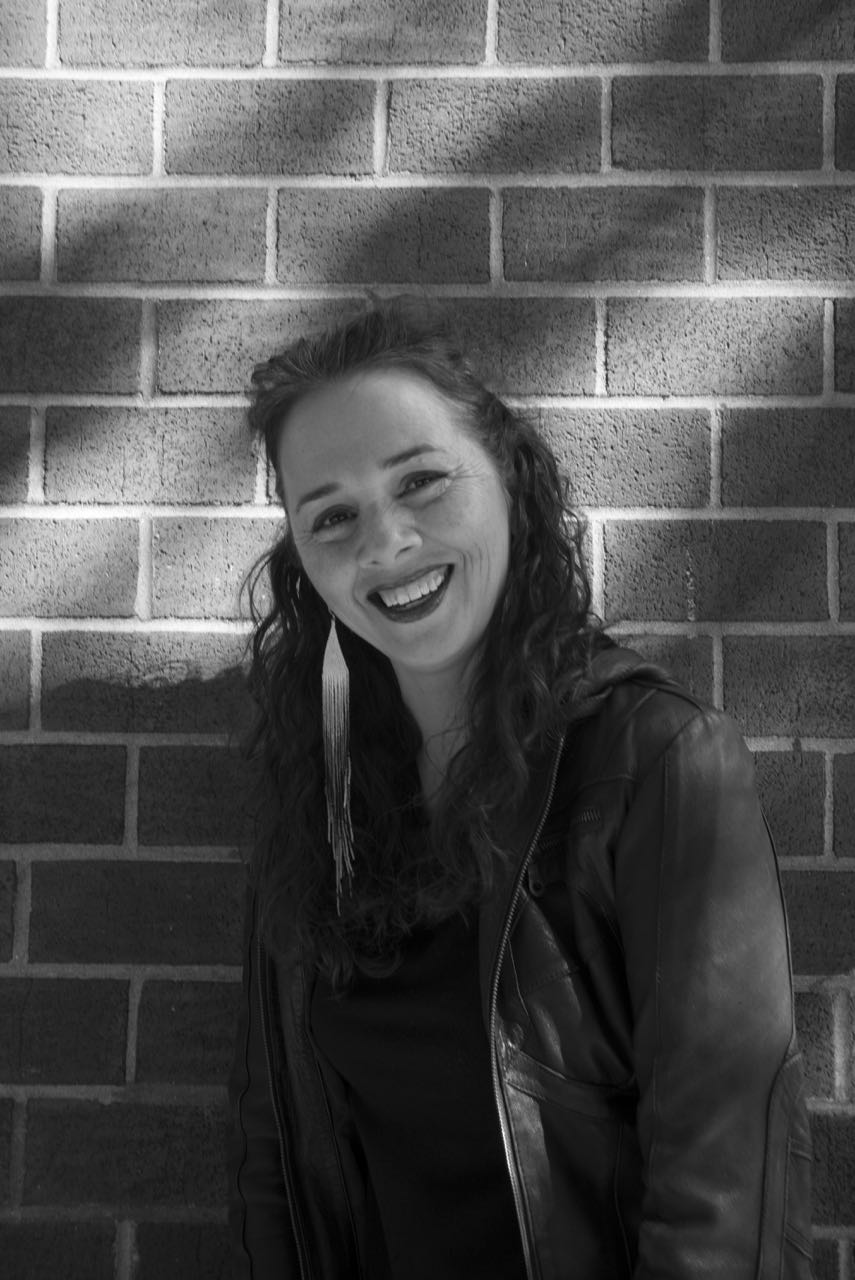
When you’re writing, do you see your plays as plays or do you see them as being played out in real life?
My writing process is really messy. I’m a self-taught writer, so I had to make up a process. I do a lot of research. I’m really into research. I could just research the rest of my life and be a happy person. I research a ton until a world starts making itself clearer. I’ve been known to go to the reference section of a library and wander up and down the aisles and keep pulling out every book that looks interesting until I have like 20 or 30 books, and then I just start reading them all and find new ideas and weird things to write about. From there, I find something that’s interesting—in this case it was Thanksgiving—and I’ll research like crazy until a world pops up in my head. I don’t outline. I don’t plan what I’m going to write. I keep putting information in there until characters show up and once they start talking, I just start writing. I don’t know what the play’s going to be about, I don’t know how it’s going to end, I don’t know what the point is. I have no idea. I just trust that I’ve given these characters enough information that they’re going to live their lives and I can write down what they say, and I just have to type really fast.
The first draft of this play, I wrote it in ten days. When I get to the writing part it goes very fast, because that’s the last part. I’ve already been giving these people plenty of information to work with, so suddenly it ends, and it’s over, and I had no idea what was going to happen until I got there. After that, that’s the part of being a dramatist. Then I have three years of workshops and refining, and learning what the play is about. It often will take me three or four drafts before I know what the point of the play is, or what they’re trying to say.
I read that you have a background in dance, and film and TV. How do you feel all of that affects your writing? And how did all of that impact how you taught yourself to be a playwright?
I was a classical ballet dancer for a whole first career. In a lot of my plays there are very large sections of physical, visual action as opposed to text, and it wasn’t intentional, but I’m sure that comes from my dance background and my film and TV background. I have a lot of trust in physical action on stage and physicality and seeing visuals without text behind them or involved in them.
I transitioned from ballet dancing where suddenly you’re 30 and retired and you’ve done nothing else your entire life. I went to Career Transitions for Dancers, which is an amazing organization funded by the various unions. They helped me with a career counselor for several years to figure out what I was going to do next. I always loved writing, but I never did it in a organized way. During that time I was acting and I was in Los Angeles. I wasn’t a fan, but I did become a fan of the script format. Because I was in LA, I assumed I would do film and TV. I transitioned into development for feature film and television. I worked at Universal and Paramount, and became a creative executive, which is basically the dramaturg of film and television. That meant I got to work with writers. The bosses I worked for knew I wanted to be a writer, so they really mentored me. All my training was the way I do everything in my life, it was experiential. I read probably a thousand scripts in a couple years. I gave the writers notes, I sat in on the writer notes before that, I talked to the readers, read all of their coverage. It taught me how a script works. And then I’d be in all the meetings and get to listen to them talking about it, and it was really learning by watching and then doing. And then I had to write my coverage, too.
I think it definitely has helped me hugely. I sold two TV shows before I was commissioned to write my first play and I had a feature film going to the Sundance Native Film Program. I always wanted to write plays because I came from a stage background, but because every playwright I knew had a master’s degree, I thought that was a requirement, you just had to have one. Because I didn’t even have any kind of degree, I figured I wasn’t able to do that. Then I got commissioned to write my first play and I realized how much my film and TV background has really helped me. I’m not precious at all. If you have to write 100 episodes of a TV show you know there’s always another story, there’s always more words, there’s always another possibility. I think having that perspective has really helped me, because to make my career as a writer, which I’m very fortunate to do, I have to write five and six projects at a time. I’m very disciplined in how much I can write in a day, how quickly I can write, staying on a schedule, and I don’t see it as something that is inspired. I don’t have the luxury of sitting around waiting for inspiration. I have to get writing done every day, and I have to sit there and do it as my job and then hopefully beautiful artistic things come out of that. But it’s very much a job and I’ve always looked at it in that way.
I was going to ask if you saw any benefits to not coming through an MFA program, especially because many of them are very institutionalized.
I have no idea what they’re teaching because I’ve never been to one, but I’m really constantly saddened for so many playwrights that come out into the world that are so precious about every word and so far from understanding the process. I’ve been a writer, I’ve been a director, I’ve been an actor, I took lighting classes. I did everything—that’s my education that I gave to myself. I really make sure that I understand everything that’s happening, and people come out of these writing programs so myopic. They just see themselves as writers on this little pinnacle. Playwriting is a collaborative process; it’s not a column, it should be horizontal. It’s this beautiful, shared process.
Obviously that’s not all playwrights, but I see so many coming out of MFA programs with such a privileged point of view of what playwriting is. And it’s like, “You’re just writing down what people say.” That’s literally all we do. It’s the easiest form of writing, in my opinion. It’s awesome, and we can hopefully make some change in the world with what we do, but it’s not a great mystery and it’s not holy. It’s just a really cool thing we’re allowed to do and I’m really privileged I get to do it, but anyone can be a playwright, they really can.
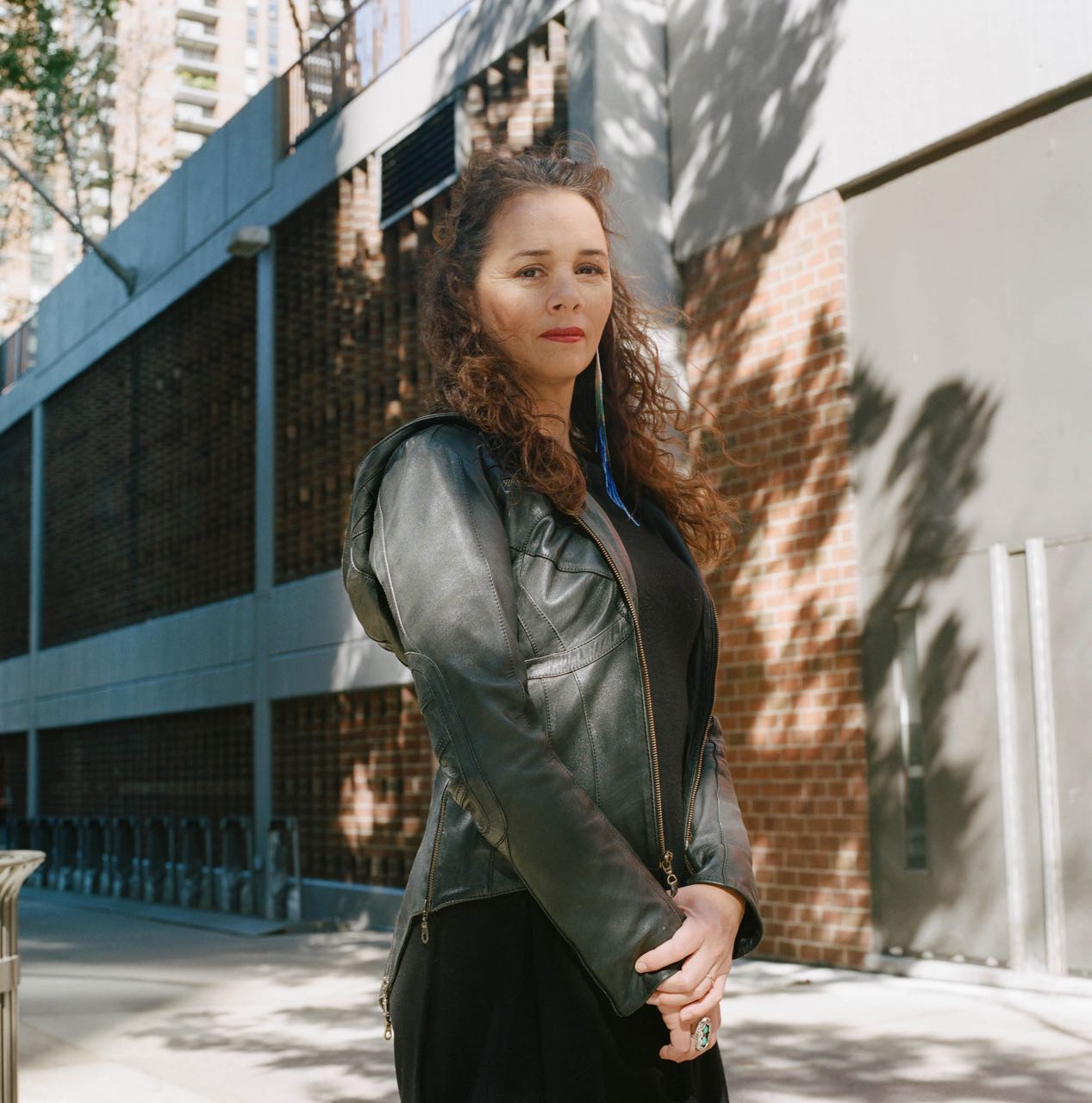
Going back to the play and the idea of the American theatre, I read the play very much as a satire on many, many types of people that I’ve met working in the theatre. Did that ever feel scary to write about or have produced, especially as your New York debut?
I don’t know why people are doing this play. I’m constantly surprised. I actually said in another interview that I just make fun of white people for 90 minutes and people keep coming. But, like I said, I did make sure that there’s comedy for everybody. Everybody can laugh at something. It’s not like I’m sitting there bopping you over the head with things.
I’m just really trying to say, this is what I see. This is what I experience every day in the world, in the American theatre, in white liberal America. I did a play called What Would Crazy Horse Do, where I worked with a Klan member as my research subject for a year and a half. He knew what I was doing, what the play was, helped me inform this character, and interview him about everything—and that was so much easier than working with super, super, super well-meaning liberals. I knew where he was coming from. It was an easy collaboration. We knew what our points of view were, we knew what our goals were, and we could just work forward. But when well-meaning American theatre, which is fortunately changing slowly, but has up until now mostly been white liberal folks, they’re so scared of making a mistake that it paralyzes them into doing nothing, and I can’t do anything with that. I don’t know how to deal with it. I can’t change it, I can’t fix it, I can’t work with you if you’re just sitting there in fear and ultimately doing nothing.
These folks that I’m actually talking about in my play, I hope what they take away from it is: let’s just all make the mistake together, let’s all be ridiculous together, and then that gives us somewhere to go. If I know where you’re coming from, you know where I’m coming from, and you can make mistakes, and I can make mistakes, and we can all get kind of crazy and yell at each other, but keep moving forward, that’s going to change everything. It truly will. I’m not someone who’s like, “Theatre will change the world,” but honestly, if we could all just start talking to each other and make mistakes and be honest, and then move forward and deal with that, it can change the world.
Have you found while doing press, now and in the past, that you get asked questions that a white male playwright is not being asked?
All the time. It’s endless. As soon as the announcement came out in The New York Times about this play, immediately I got fellow folks of color saying, “We need to talk to you about your white male director.” And I was like, “Great, I’d be happy to have that conversation after you assure me that you’ve talked to every white playwright that’s hired a white male director, and if you’ve asked them that same question first, then feel free to come to me, the first Native American person ever to be produced in the history of this theatre, who feels like I’m holding on to American theatre by my fingernails, then you can come to me and question me. But until you’ve asked the people that have been here doing this for 50 years, until you’ve asked them that question, then don’t come to me.” I just got here, and there are a million reasons I’m hiring Moritz von Stuelpnagel, the biggest one is that he’s perfect for this play. He and I have a great relationship, he has the same sense of humor, and a huge, huge benefit to this particular play is that he is a straight, white, liberal male in American theatre. He’s exactly who I’m writing about, and having that point of view against my point of view has been perfect for this play and has really deepened the play and deepened my ability to make sure what I’m trying to portray is getting across to the target audience, which is him.
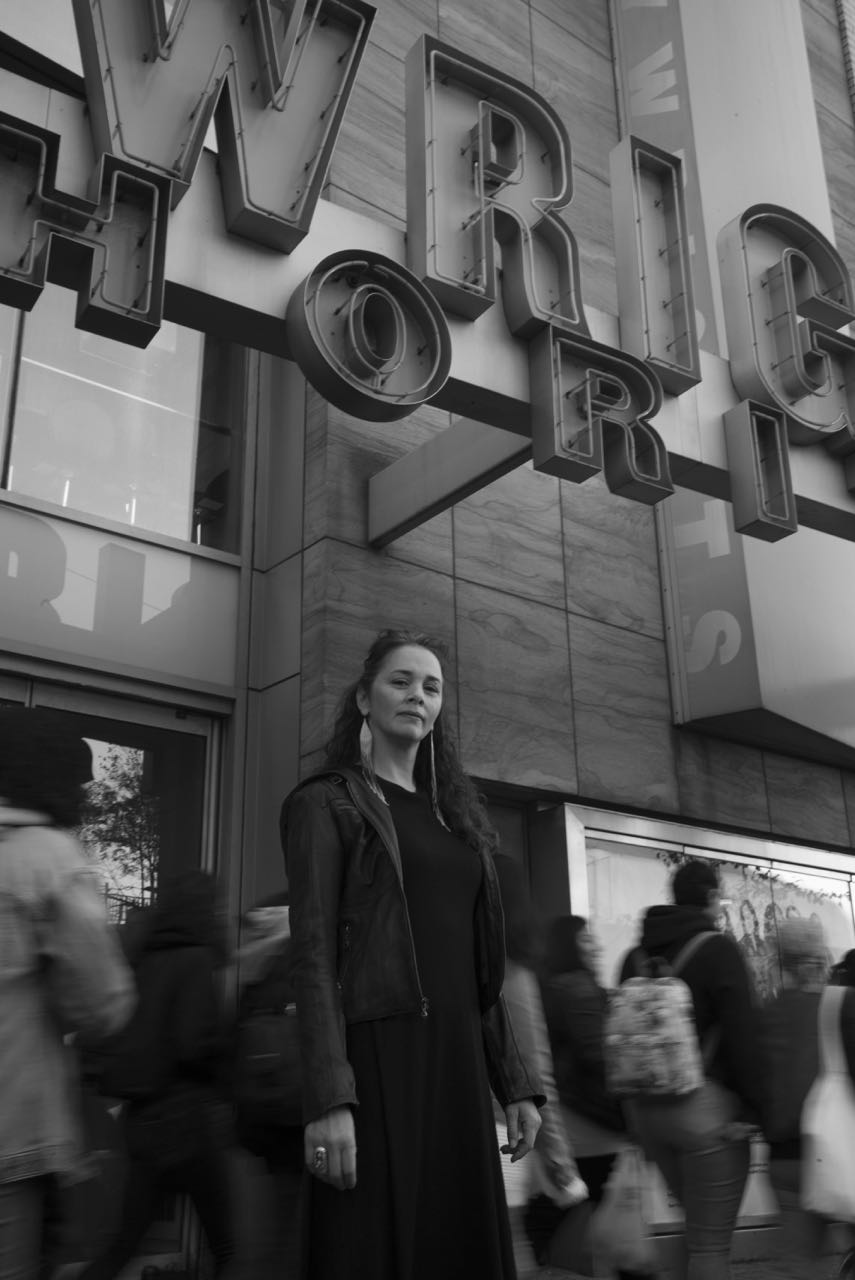
Do you feel that there’s an added pressure of altruism placed on you and your work? The play is a comedy and satire, and have there been people who have wanted to take it very seriously and reverently?
Absolutely. We just started having some audience talkbacks and I slipped a spy in last night. This one guy, who clearly identified as the good white liberal, was really taking things personally and getting very upset, and my spy was like, “I just wanted to say to him, dude, it’s a satire. Chill out. And maybe you’re so upset because you should look in the mirror.” These characters are doing performative wokeness. They want to seem really woke, but it’s very much a performance that they do when it suits them and not when it’s needed and not for the people it’s needed by.
I mean it’s the whole thing I’ve been whining and yapping about ever since the last Presidential election and the Women’s Marches, and all this stuff. It’s like, where have you people been? People of color have been marching and protesting and talking about these things for decades, and where were you? It’s just an ongoing thing. My hope is that America in a couple years, if things change, they don’t just say check, we’re done, and go back to it, because it’s not affecting white people anymore. And that’s really what it is. Everything’s affecting white folks. There’s a white woman talking at the Supreme Court hearings, there’s a white woman being depicted in a sexy Handmaid’s Tale costume. There are still dozens, dozens of costumes sexualizing Native American women and I read recently that one in two Native American women has been sexually assaulted. So every other Native American woman you meet has been sexually assaulted, and that’s horrifying. And yet, white women will go out and put on costumes sexualizing us as items to be worn on the street for Halloween and no one is protesting that. My hope in writing this play, and writing it the way I did, is that we can listen and see and have a laugh, and then do things differently.
Does this feel like pressure since it’s your New York City debut?
Yes. It’s endless pressure. If one more person says, “It’s your first play in New York City, and you’re the first Native American ever produced in this theatre, and possibly according to their research it’s actually the first Native American playwright ever produced at a major Off-Broadway house in New York City…” It’s never ending pressure and it’s really stressful. I had a major meltdown on Monday. And as a woman too. Every single play I have is a lead female character. I’ve never written plays that are not led by a woman. I personally put that on myself as well, because I’m depicting women, and in this particular case in some really problematic ways, but with intentionality, because that’s again what we’re facing as women in the world.
Has there been any way to prepare for the pressure?
I have not created a good method. I think both Moritz and I are both so sensitive and we’re both so tired and working so hard on this. He feels such tremendous pressure because it’s like, “Great, I’m going to screw up the first Native American playwright in a major Off-Broadway house,” and I’m like, “Ah, I’m going to screw it up for everybody else and they’re never going to hire another Native American person.” I worry a lot about so many things. I’ve had staff trainings to help them be ready for Indigenous audiences. We have this guest curator, Emily Johnson, who’s a Native American woman who lives here in town, who’s curating all kinds of events for the year at Playwrights Horizons including this art exhibit in the lobby and Native American readings. I’m working on getting ticket sales and we’ve got all these group ticket sales. I just want this all to be successful, because in my culture we always talk about the seventh generation. Everything in my Lakota culture is about how what we do now, we’re doing for seven generations down the road. That’s how far we have to see. So, I put an incredible amount of pressure on myself that like, “Okay, if I screw this up, the seventh generation is not going to be walking into this theatre freely.”
I’m trying to take it all in and appreciate it. We’re at that weird place where the playwright [role] now switches. We get to be in the lovely cocoon of being in the room and creating and being in this lovely, dark space of relative anonymity, and now the audiences are coming, now we switch into press, and donor dinners, and talkbacks, and now I become kind of this public face. I now have to go into a different mode. I have to wear makeup, because I don’t want pictures taken without it, and bringing out the good jewelry, and doing those things because now I become the public side of this play. I love this part too, but that’s a whole different kind of energy and a different kind of pressure. I’m excited for it though because I love this play.
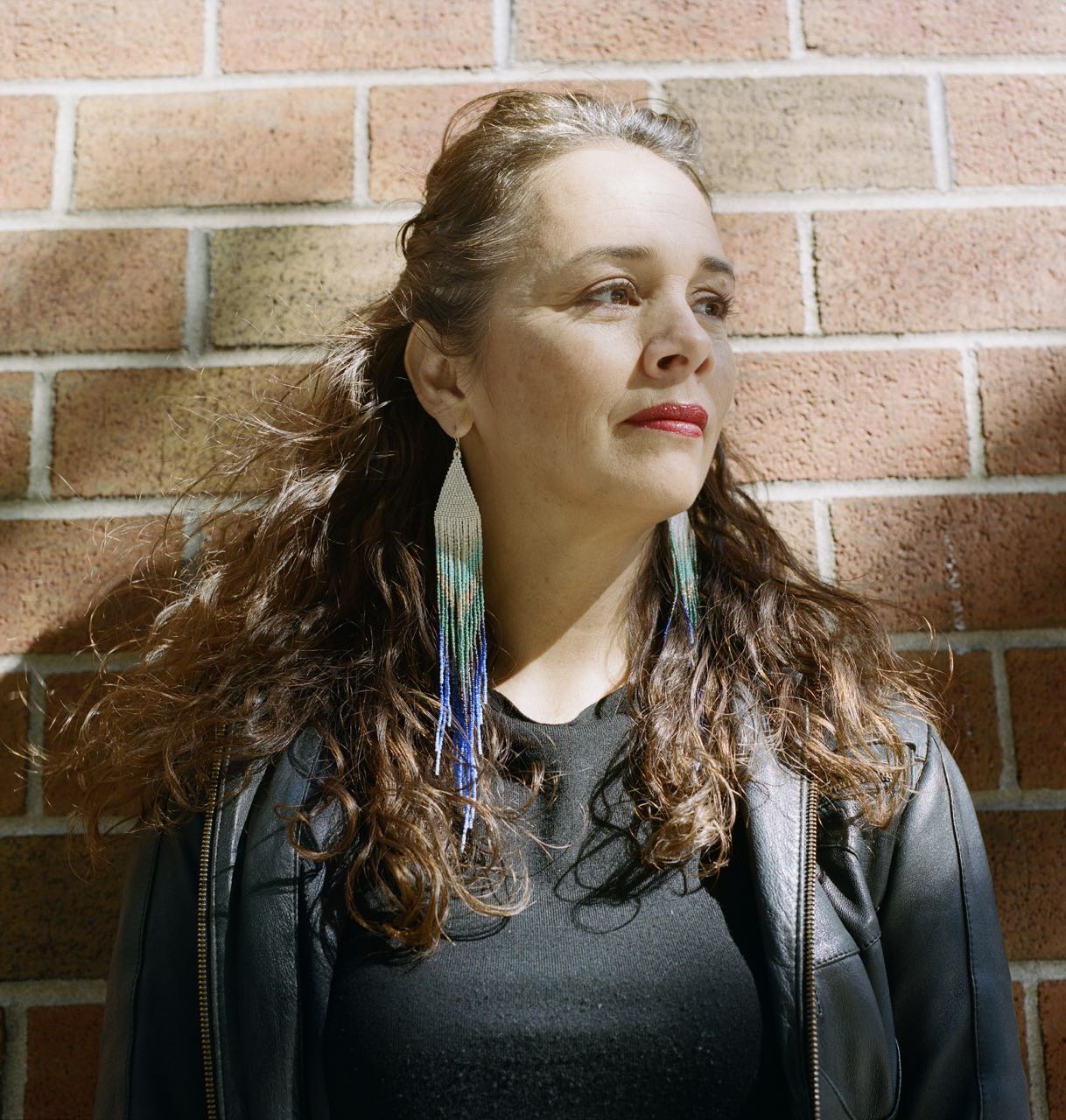
What is your personal relationship like with ambition and have you found that it has changed over the course of your career?
I’m definitely like a Type A. I’m a North, which is like the ambitious, aggressive, overachiever. My 40s have been a gift of being like, “Okay great, I’m a North.” I used to fight that and be like, “Oh, I should be more Northeast or Northwest,” But now I’m like, “You know, I’m just a North, so I’m just going to do that.”
I feel like I’ve always done that in my life. I said I wanted to be a classical ballet dancer from the middle of nowhere South Dakota and as a Native American woman and there have been very few of us, and I did it. I said I wanted to write in film and TV, and I sold two TV shows. I said I wanted to write plays and I’ve been really fortunate I can do this. It’s taken me a long time because I come from both the Midwest and the Lakota culture, which is very self-deprecating and everything’s about the community. But I’ve come to realize I’m a very ambitious person. I like to do well. That’s the reality.
I work and live in a white dominant society that values certain things, and what they value is a certain type of ambition, a certain type of ego, a certain type of confidence. Often, it’s different for women, but I don’t know how to adjust myself for gender, so I just go ahead and I’m me. I get called direct a lot. I love it when people are direct. But in women it’s often considered a negative. And I’m like, “Oh well, then I guess I’m not for you, that’s okay.” I think that’s been a big part of my whole philosophy. I’m just going to go ahead and be me, and I’m going to be ambitious and I’m going to want to do well, and I’m going to want to succeed, and if that’s not for you then that’s okay, there are other people. You don’t have to hire me. That’s fine. You don’t have to work with me. You don’t have to even come to my play, it’s okay. I think you’re going to be sad, because it’s fun and you’re missing out, but you don’t have to, it’s alright. I might not be for you and that’s okay.
Internally, I’m still always thinking about that seventh generation. So if I can succeed, if I can be the first Native American woman here in this theatre, then seven generations from now they’re not even going to think twice about it. All Natives, but especially Native women, are just going to come in and out of these doors and not even think it’s amazing, they’re not going to feel the same pressure, they’re not going to feel any different pressure than anyone else feels. They’re just going to be focused on creating a play and not worrying about cultural sensitivity training and land acknowledgment and trying to get group sales. My ambition is my secret weapon to make the seventh generation be able to do this a lot more easily.
I’m standing on the shoulders of so many Native women. We have Spiderwoman Theatre right here in town. Those ladies paved such a hard road. They were moving boulders, they were moving mountains just to express themselves and get to do their work here in downtown New York and have their own theatre company. They had to do such incredibly hard work just to say what they wanted to say in a small space, and they’ve grown themselves into this beautiful, nationally beloved theatre company and this institution. They worked so hard for it and I know that I’m walking on that road that they already created. They may not have been in this space, but I only can walk into this space because they created the road from downtown to here.
An earlier version of this article stated that, as per information from the theatre, this was believed to be the first time a play by a Native American had been produced by a major Off-Broadway theatre. More specifically, it is the first full-length, full production. There have been plays by Native American authors performed at Off-Broadway theatres in short, workshop, and festival form.

